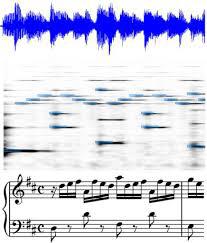Search Results for author: Jiqing Han
Found 12 papers, 4 papers with code
A Glance is Enough: Extract Target Sentence By Looking at A keyword
no code implementations • 9 Oct 2023 • Ying Shi, Dong Wang, Lantian Li, Jiqing Han
This paper investigates the possibility of extracting a target sentence from multi-talker speech using only a keyword as input.
Spot keywords from very noisy and mixed speech
no code implementations • 28 May 2023 • Ying Shi, Dong Wang, Lantian Li, Jiqing Han, Shi Yin
We propose a novel Mix Training (MT) strategy that encourages the model to discover low-energy keywords from noisy and mixed speech.
Time-weighted Frequency Domain Audio Representation with GMM Estimator for Anomalous Sound Detection
1 code implementation • 5 May 2023 • Jian Guan, Youde Liu, Qiaoxi Zhu, Tieran Zheng, Jiqing Han, Wenwu Wang
This paper presents Time-Weighted Frequency Domain Representation (TWFR) with the GMM method (TWFR-GMM) for anomalous sound detection.
Using Auxiliary Tasks In Multimodal Fusion Of Wav2vec 2.0 And BERT For Multimodal Emotion Recognition
no code implementations • 27 Feb 2023 • Dekai Sun, Yancheng He, Jiqing Han
For the difficulty of multimodal fusion, we use a K-layer multi-head attention mechanism as a downstream fusion module.
Exploring Transformer's potential on automatic piano transcription
no code implementations • 8 Apr 2022 • Longshen Ou, Ziyi Guo, Emmanouil Benetos, Jiqing Han, Ye Wang
Most recent research about automatic music transcription (AMT) uses convolutional neural networks and recurrent neural networks to model the mapping from music signals to symbolic notation.
Can We Trust Deep Speech Prior?
no code implementations • 4 Nov 2020 • Ying Shi, Haolin Chen, Zhiyuan Tang, Lantian Li, Dong Wang, Jiqing Han
Recently, speech enhancement (SE) based on deep speech prior has attracted much attention, such as the variational auto-encoder with non-negative matrix factorization (VAE-NMF) architecture.
Speech Separation Based on Multi-Stage Elaborated Dual-Path Deep BiLSTM with Auxiliary Identity Loss
1 code implementation • 6 Aug 2020 • Ziqiang Shi, Rujie Liu, Jiqing Han
We have open sourced our re-implementation of the DPRNN-TasNet here (https://github. com/ShiZiqiang/dual-path-RNNs-DPRNNs-based-speech-separation), and our TasTas is realized based on this implementation of DPRNN-TasNet, it is believed that the results in this paper can be reproduced with ease.
La Furca: Iterative Context-Aware End-to-End Monaural Speech Separation Based on Dual-Path Deep Parallel Inter-Intra Bi-LSTM with Attention
1 code implementation • 23 Jan 2020 • Ziqiang Shi, Rujie Liu, Jiqing Han
We have open-sourced our re-implementation of the DPRNN-TasNet in https://github. com/ShiZiqiang/dual-path-RNNs-DPRNNs-based-speech-separation, and our `La Furca' is realized based on this implementation of DPRNN-TasNet, it is believed that the results in this paper can be smoothly reproduced.
Sound Audio and Speech Processing
Hard Sample Mining for the Improved Retraining of Automatic Speech Recognition
no code implementations • 17 Apr 2019 • Jiabin Xue, Jiqing Han, Tieran Zheng, Jiaxing Guo, Boyong Wu
Thus, the parameters are more influenced by the training samples with a big propagation error than the samples with a small one.
 Automatic Speech Recognition
Automatic Speech Recognition
 Automatic Speech Recognition (ASR)
+2
Automatic Speech Recognition (ASR)
+2
A Multi-Task Learning Framework for Overcoming the Catastrophic Forgetting in Automatic Speech Recognition
no code implementations • 17 Apr 2019 • Jiabin Xue, Jiqing Han, Tieran Zheng, Xiang Gao, Jiaxing Guo
On the one hand, we constrain the new parameters not to deviate too far from the original parameters and punish the new system when forgetting original knowledge.
 Automatic Speech Recognition
Automatic Speech Recognition
 Automatic Speech Recognition (ASR)
+2
Automatic Speech Recognition (ASR)
+2
Acoustic Scene Classification by Implicitly Identifying Distinct Sound Events
1 code implementation • 10 Apr 2019 • Hongwei Song, Jiqing Han, Shiwen Deng, Zhihao Du
In this paper, we propose a new strategy for acoustic scene classification (ASC) , namely recognizing acoustic scenes through identifying distinct sound events.
FurcaNeXt: End-to-end monaural speech separation with dynamic gated dilated temporal convolutional networks
no code implementations • 12 Feb 2019 • Ziqiang Shi, Huibin Lin, Liu Liu, Rujie Liu, Jiqing Han, Anyan Shi
Deep dilated temporal convolutional networks (TCN) have been proved to be very effective in sequence modeling.
Sound Audio and Speech Processing






